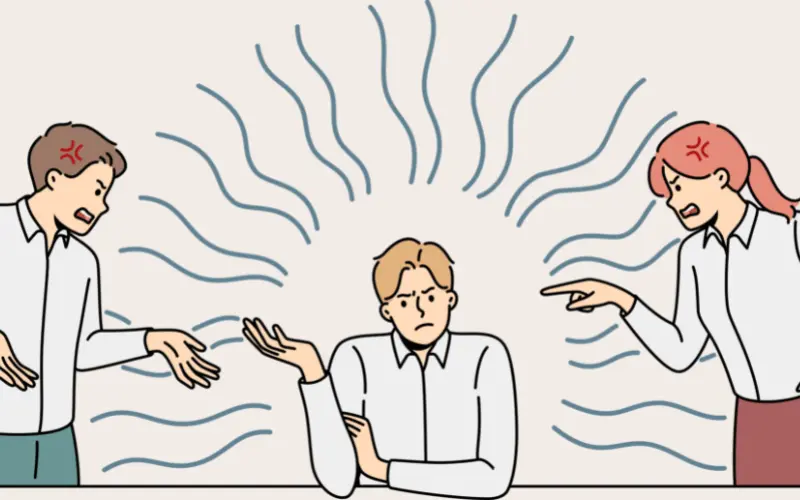When you are anxious or stuck, giving your brain a fast reboot might help clear the backlog of ideas in your working memory and leave you with a more organized mental workspace. Consider a desk that is piled high with bits and pieces of various projects, memoranda, and other critical files to be completed. When you’re trying to locate a certain piece of information, all of this clutter might make your task far more difficult.

In a similar vein, when you let superfluous or problematic ideas accumulate in your brain, you may find yourself repeatedly cycling over the same unwelcome mental material. An unsuccessful hunt for a forgotten memory or another key concept might leave you feeling hazy and overwhelmed for a long time afterward. You should not be concerned if your brain isn’t functioning as efficiently as it may be. The following eight recommendations may be of assistance when this occurs.
Strategies for brain cleansing
Clear intentions
Setting a purpose for the season or for the next chapter of your life may be a great approach to begin the detoxification process. This allows you to jump into a new dynamic in a purposeful manner rather than relying on chance. You should contemplate in making a list of all of the areas in which you aim to advance in your life — and dream big about where you want to be in the future.
What would you say if you had to choose a single word or phrase to convey the overall feeling you have about what you want to accomplish? When you come up with this purpose, write it down and keep it somewhere you will see it frequently so that you can remind yourself of your ultimate intention for the season as it approaches.
Go outdoors
Spending time outdoors has the ability to instill feelings of encouragement, inspiration, and enhanced energy levels in both your brain and your body. It also has several other benefits, including improving general physical and mental health, lowering stress levels, improving concentration, and quieting the brain.
With this type of power, stepping outside may well be the most effective method of de-stressing your brain. Spring is an excellent time to go out of the house and enjoy the fresh air. Take a stroll, visit a park, sleep in a hammock, or establish a garden to relieve stress. After all, the light is shining, and the birds are chirping in this beautiful setting.
Mindfulness
Training your brain to be more conscious may be quite beneficial in a variety of situations. For starters, it may assist you in being present and attentive to what is going on around you. To be fully present means you can give your full attention to a co-worker as they explain how to perform a complicated task, rather than being distracted by the things you require to add to your things to do list, the dinner ingredients you need to pick up later, and the ever-expanding list of possible reasons why your recent date didn’t respond to your text message.
When you learn how to deliberately concentrate your attention on just one job at a time, it might be convenient to let go of those pesky side ideas. There they are, but they are lying more gently under the surface now, rather than demanding your attention as they once did. As a result, experiences become more joyful and less hurried as a result of the increased mental bandwidth. However, even if meditation does not work for you, you may still practice mindfulness to raise your level of awareness while you go about your daily activities.

You’ll most likely find that your thoughts continue to stray from time to time. Remember that this is natural, and try not to be harsh on yourself for not being more observant. Instead, just refocus your attention on whatever it is that you want to concentrate on. It may take some time to develop this talent, but your brain will ultimately get used to being in the current moment.
No technology
In order to accomplish a higher level of self-reflection and mental clarity, you’ll need to set aside time that is free of distractions – time that allows you to disconnect from the incessant technological and social demands of everyday life.
Make a conscious struggle to spend time away from your smartphone, access to social media, and a constant stream of texts, phone calls, and email messages. When you are at the mercy of alerts, it indicates that you are living your life according to the dictates of someone else. When you separate yourself from these things, you regain control over your time.
Meditation
Every day, the normal human brain generates at least 50,000 ideas, which indicates that you have a random idea about every 1.2 seconds. The human mind is sometimes described as the monkey mind because of this characteristic. As a result, it is easy for the mind to get overwhelmed by the multitude of random ideas and become lost or diverted from crucial tasks. Having a method for detoxing the mind is essential for staying on track.
When it comes to calming the monkey mind, meditation is an excellent tool. When you practice converging on one thing at a time during meditation, you will become more adroit at focusing on one thing at a time in other areas of your life as well.
This will essentially reduce the importance of the unhelpful and distracting thoughts that enter your mind while increasing your ability to concentrate on what requires your attention in other areas of your life as well. This is how meditation may help you purify your brain while also improving your capacity to concentrate.
Let go of excess things in your life
Consider your replies as well as your life objectives. What or who may be a hurdle in the way of you attaining your life objectives? What aspects of your life are you willing to let go of in order to make room for something new to enter? This might be a profession, a relationship, a certain sort of food, an emotion, a sense of duty, a limiting belief, a time commitment, a task, or something else completely. You should list down as many obstacles as you can think of that are standing in your way of achieving your goals and finding happiness.











